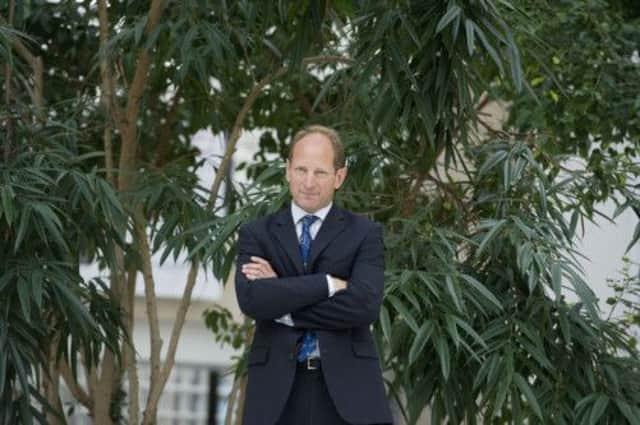‘Golden era of pensions over’ warns Toby Strauss


As the head of insurance at Lloyds Banking Group, and chief executive of Scottish Widows, he wants to shift the focus from the “P” word – pensions – to the “R” word.
It is a subtle shift, but a critical one. While pensions are more about dealing with life after work, retirement is increasingly concerned with people continuing to work.
Advertisement
Hide AdAdvertisement
Hide Ad“We want to move a little bit from being a pensions specialist to a retirement specialist,” he says. “People are living longer and they are still active, they may be working part-time, or be in need of long-term care.”
This opens up new lines of business as retirees seek protection policies for their health and well-being. But the key change is how retirement will no longer mean being out of the labour market. Strauss says it will become “socially odd” for someone to say they “do nothing” in retirement.
“There has been a golden era when people have been able to work and then retire. It is a one-off that is now unaffordable. We will go back to a world where people work part-time and, in that sense, it will be more like it was 100 years ago.
“It will be socially odd to be at a dinner party and tell someone you do nothing. People will do some form of paid work and the challenge is to get people to save more so they have choices in retirement.”
Strauss joined Lloyds in October 2011 from Aviva where he was UK life chief executive. He sits on Lloyds’ executive committee and reports to group chief executive António Horta-Osório. His career has included spells at Charcol, John Scott & Partners – now Towry Law – and McKinsey.
He acknowledges the pressures on income-constrained consumers to save for retirement but says many are guilty of simply ignoring the issue.
“People are not cancelling their Sky subscription or their holidays. They still have money for these things,” he says, joking that these are “poor choices”, by which he means they ought to be setting aside more of their income for their future. “Everyone has to save and protect themselves properly as the state cannot provide for them any more.”
He says auto-enrolment, which forces employees into a pension unless they opt out, will make a big difference, as will the decline of final salary pensions.
Advertisement
Hide AdAdvertisement
Hide AdHe accepts that consumers have become less trusting of the financial services industry following recent scandals over mis-selling. But he argues that they retain faith in individual companies and professionals.
“Yes, there have been more skeletons in the cupboard than anyone would like, but people still trust their own bank or insurer, if not the industry.”
That said, pensions providers are looking to grow in spite of any apparent loss of faith. The number of people in retirement over the next five years will rise by 50 per cent, creating demand for annuities. Strauss says that, although not enough people are saving, there has been no noticeable trend towards cancelling policies as in previous economic downturns.
As for the future of Scottish Widows itself, he says Lloyds has no intention of selling it. “We are the leader in bancassurance so we have shown that it works,” he says.
He rejects speculation that the widow herself may be replaced. “There is no risk to the widow. We have an icon and we would be daft to do anything about her,” he says. In fact, a new campaign is being worked on that will put her into a “modern family context”, and Hayley Hunt retains the role.